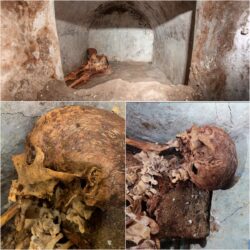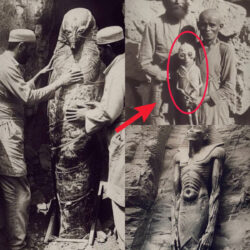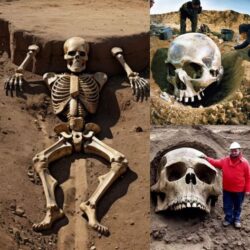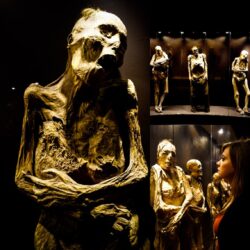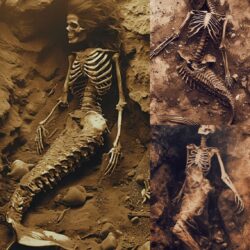Many of you will already be acquainted with the elongated skulls of Paracas Peru. It has recently been revealed through DNA tests that 4 of the Paracas contain ancestry which would not have been the result of crossing the Bering Land Bridge. More details will come out July 15.
We very recently visited a very difficult to get to ancient site near a village called Patapatani in Bolivia and found evidence that honestly shocked us. Excavations by a Finnish team found the remains of at least 6 individuals in a Chullpa tower, which would have been constructed as a tomb for people of royal status.

Joining us on this adventure were Ken, who is an American radiologist, and thus an expert of human anatomy (left) and Bolivian author Antonio Portugal whom we travel with whenever we are in Bolivia. The remains from the tower are now in a small locally run museum in Patapatani.

The above intact skeleton, according to Ken would have died between 10 and 12 years old, possibly 13 and though her skeleton appears normal, her head is clearly huge and elongated. The shape of the pelvis indicated a female, and the skull, Ken said, is way out of the range for cranial deformation.

As well, there was a fetus found in the tower which died, according to radiologist Ken, at between 7 and 9 months development. He believes it is quite possible that the fetus was from the young girl, and that both may likely have died during childbirth, or soon before that.

If this proves to be the case, then we are looking at the fact that the baby would have been born with an elongated skull, and that the mother also was born with this condition. The ramifications are huge; we could be looking at a subspecies of human being that died out long ago.

